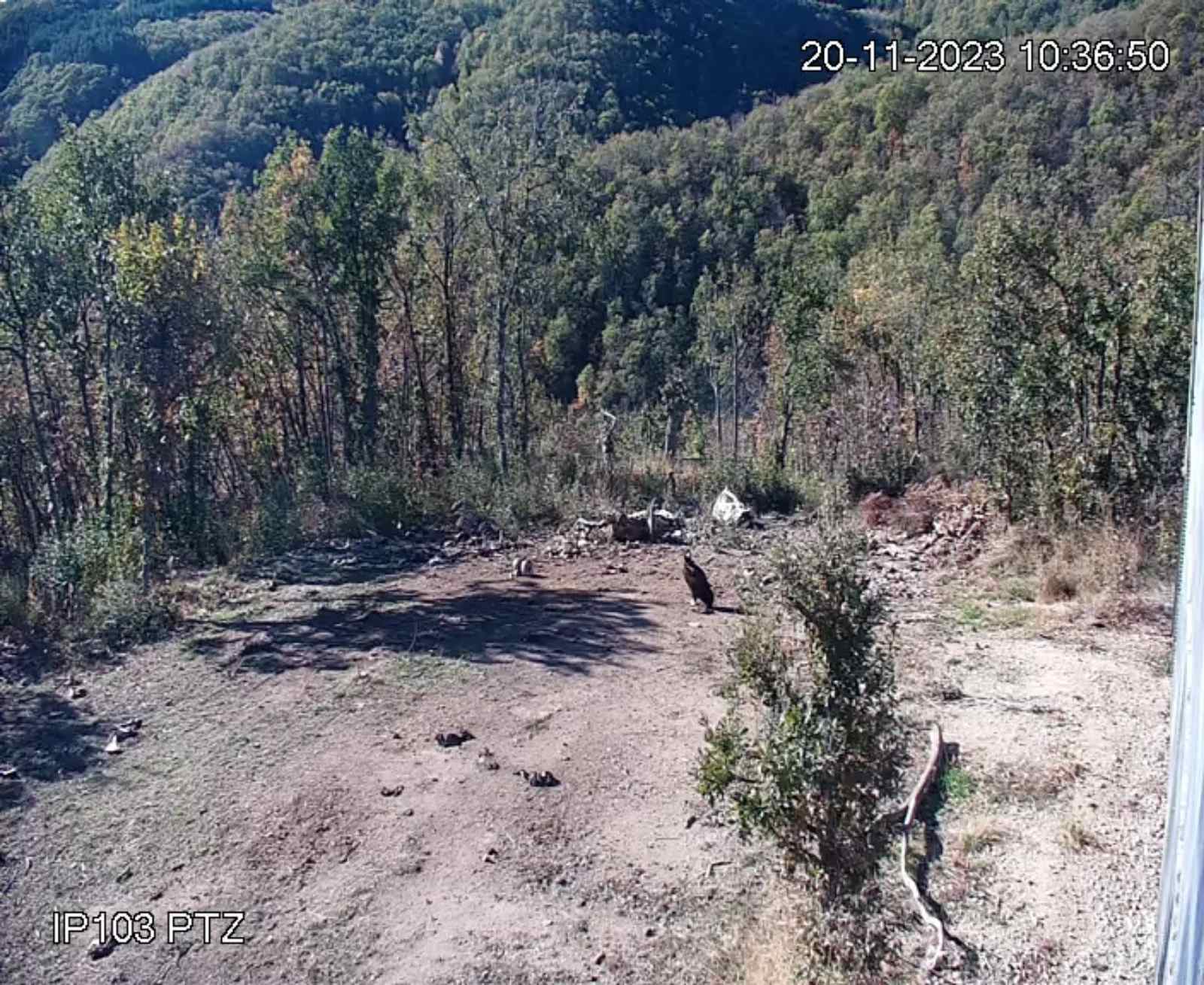Second large group of 13 cinereous vultures were released the Rhodope Mountains rewilding landscape in Bulgaria as part in a long-term programme to re-establish as a breeding species run by our local Rewilding Rhodopes team and their partners from the Bulgarian society for the protection of birds (BSPB). It is expected that they will join the eight black vultures released last in the Eastern Rhodopes and Sakar Mountains, forming a colony together, as this keystone species gradually re-establishes itself within the local ecosystem.

The first few days are critical for the inexperienced birds as they should quickly learn to roost in safe areas in the vicinity to the aviary and return to feed at the feeding station until they are strong enough to make longer flights and forage on their own. The BSPB team is monitoring the birds during these first days after the release to make sure that the adaptation of the vultures goes smoothly and they are safe. “The release is going according to plan; the birds are calm and keeping to the aviary area. We expect them to join those released last year. And our great hope is that next year, we will have good news about the first nesting attempts,” commented Dobromir Dobrev from BSPB.
Prior to the release the vultures were temporarily housed in a large, purpose-built after their arrived from Spain in June got their chance for a new life in the wild nature of the Rhodopes. The local rewilding team is making sure that transition from captive life to life in the wild be done smoothly and without any additional stress for the birds. For this purpose, food is placed in front of the aviary, the doors are carefully opened and limited human presence is ensured in the area for a short period of time. In this way, the vultures are given the opportunity to leave the aviary when they feel safe and calm. In October, experts and volunteers tagged and fitted transmitters to the rare birds, enabling the team to track their movements and condition in real time and learn more about their lives in the wild.

Cinereous vultures, also known as Eurasian black vultures, once ranged from Portugal all the way across Europe, through Turkey to the high mountains of Kazakhstan and the Mongolian steppe. However, like many vulture species, cinereous vultures have seen their historical range shrink and fragment as their numbers have plummeted, with populations subject to a combination of threats including poisoning, habitat loss, reductions in the availability of carrion, and collisions with powerlines. Today, the European cinereous vulture population is split in two, divided between a population cut off in the west and another remnant population isolated in the Balkans.
The cinereous vulture has been extinct as a breeding species in Bulgaria’s Eastern Rhodope Mountains since 1993 – it is hoped that the released birds will soon nest and raise offspring. As part of the rewilding vision for the local landscape, the return of Europe’s heaviest and largest raptor promises to restore a vital part of the circle of life. The restoration of food chains by the Rewilding Rhodopes team – which also involves the return of European bison, red and fallow deer and semi-wild horses – will enhance the health and resilience of the Rhodopean landscape. The presence of the vultures will also support the further development of nature-based tourism, delivering economic benefits to local communities.
The cinereous vulture recovery programme in the Rhodope Mountains is being carried out by the Bulgarian Society for the Protection of Birds (BSPB), in cooperation with the Rewilding Rhodopes team, and is being funded by Rewilding Europe. The birds were provided by the Spanish NGO GREFA (Grupo de Rehabilitación de la Fauna Autóctona), which has been working for years to rescue and rehabilitate injured wild birds. Over the next few years, an additional 6-10 individuals are planned to be released annually as part of the ongoing program. The establishment of a colony in Bulgaria will support the survival of the species in the Balkans, as it is expected that there will be an exchange of birds with the last surviving local colony of about 25-30 pairs located in the Greek part of the Rhodopes, as well as with the newly formed colonies of the species in Stara planina.
The activities to return the black vultures to the Eastern Rhodopes are carried out by the Bulgarian Society for the Protection of Birds in cooperation with the Wilder Rhodope Foundation and are funded by Rewilding Europe.